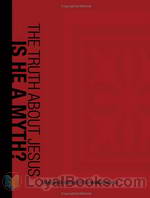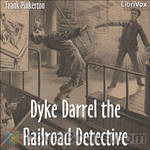|
Books Should Be Free Loyal Books Free Public Domain Audiobooks & eBook Downloads |
|
|
Books Should Be Free Loyal Books Free Public Domain Audiobooks & eBook Downloads |
|
Top Authors |
|---|
|
Book type:
Sort by:
|
By: Keith Laumer (1925-1993) | |
|---|---|
 Gambler's World & The Yillian Way
Gambler's World & The Yillian Way
Here are two stores starring the always unconventional Terrestrial Diplomat, Retief. As a diplomat, Retief does not always follow procedure. Well the truth is that he almost never follows procedure but somehow his wit and strength manage to salvage most situations from the bumbling of his superiors. His sardonic approach to inter galactic negotiations in these two stories is a delight to hear. Despite everything, he manages to save the day and come out on top. | |
 The Yillian Way
The Yillian Way
| |
By: Fergus Hume (1859-1932) | |
|---|---|
 The Secret Passage
The Secret Passage
Excellent murder mystery. On September 9, 1905, the NY Times Saturday Review of Books described this book as follows: “That painstakingly ingenious person, Fergus Hume, has devised another of his hide-and-seek, jack-o’-lantern murder mysteries. It begins with a queer and rich old woman found stabbed to death in her chair and not a clue to the murderer. Then so many clues turn up that even the story-book detective is bewildered. Then nearly everybody turns out to be somebody else under an alias, and all the clues lead nowhere…” | |
 The Mystery of a Hansom Cab
The Mystery of a Hansom Cab
“The following report appeared in the Argus newspaper of Saturday, the 28th July, 18– “Truth is said to be stranger than fiction, and certainly the extraordinary murder which took place in Melbourne on Thursday night, or rather Friday morning, goes a long way towards verifying this saying. A crime has been committed by an unknown assassin, within a short distance of the principal streets of this great city, and is surrounded by an impenetrable mystery. … “On the twenty-seventh day of July, at the hour of twenty minutes to two o’clock in the morning, a hansom cab drove up to the police station in Grey Street, St... | |
 Madame Midas
Madame Midas
Madame Midas is a murder mystery, In the early days of Australia, when the gold fever was at its height. Fergus Hume was born in England, the second son of Dr James Hume. At the age of three his father emigrated with his family to Dunedin, New Zealand. He was admitted to the New Zealand bar in 1885. Shortly after graduation he left for Melbourne, Australia where he obtained a post as a barristers’ clerk. He began writing plays, but found it impossible to persuade the managers of the Melbourne theatres to accept or even read them... | |
 The Silent House
The Silent House
A mystery about a “locked door” murder committed in a house that has a reputation for being haunted. In the first half of the book, the murderer appears to be easy to figure out. The second half of the book, however, is filled with plot twists and mistaken identities and thus complicates the mystery much more. | |
 The Green Mummy
The Green Mummy
| |
 Bishop's Secret
Bishop's Secret
| |
 The Mandarin's Fan
The Mandarin's Fan
| |
 The Solitary Farm
The Solitary Farm
| |
 A Woman's Burden
A Woman's Burden
| |
By: P. G. Wodehouse (1881-1975) | |
|---|---|
 The Girl on the Boat
The Girl on the Boat
Also published as "Three Men and a Maid". The maid of the title is red-haired, dog-loving Wilhelmina "Billie" Bennet, and the three men are Bream Mortimer, a long-time friend and admirer of Billie, Eustace Hignett, a lily-livered poet who is engaged to Billie at the opening of the tale, and Sam Marlowe, Eustace's dashing cousin, who falls for Billie at first sight. All four find themselves on an ocean liner headed for England together, along with a capable young woman called Jane Hubbard who is smitten with Eustace, and typically Wodehousian romantic shenanigans ensue. (Introduction by wikipedia) | |
 Mike and Psmith
Mike and Psmith
| |
 Death at the Excelsior And Other Stories
Death at the Excelsior And Other Stories
| |
 The Politeness of Princes and Other School Stories
The Politeness of Princes and Other School Stories
| |
 The Gold Bat
The Gold Bat
| |
 The Gem Collector
The Gem Collector
| |
 The Little Warrior
The Little Warrior
| |
 The Head of Kay's
The Head of Kay's
| |
 Love Among the Chickens A Story of the Haps and Mishaps on an English Chicken Farm
Love Among the Chickens A Story of the Haps and Mishaps on an English Chicken Farm
| |
 Little Nugget
Little Nugget
Mrs Nesta Ford, in her London hotel room, reveals to her new friend Lord Mountry that she hopes to take her son Ogden on a yachting trip proposed by Mountry, despite her ex-husband having won custody of the boy. As Mountry leaves, Cynthia Drassilis arrives with Ogden, whom she has led away from his father's country house. Mrs Ford rewards Cynthia, but soon Mr Ford's secretary, a Mr Minnick, arrives to recover the stolen child. Cynthia tries to bribe his colleague, Mrs Sheridan, but to no avail, as she believes Nesta's influence has spoiled the boy... | |
By: M. M. Mangasarian (1859-1943) | |
|---|---|
 The Truth About Jesus. Is He a Myth?
The Truth About Jesus. Is He a Myth?
The following work offers in book form the series of studies on the question of the historicity of Jesus, presented from time to time before the Independent Religious Society in Orchestra Hall, Chicago, 1909. No effort has been made to change the manner of the spoken, into the more regular form of the written, word. | |
By: John Keats (1795-1821) | |
|---|---|
 Poems 1817
Poems 1817
Early poems of this famous English lyric poet, in which he openly expresses indebtedness to, and reverence for, his poetic predecessors, especially Spenser, into whose chivalric world he boldly ventures; and also for Milton, and the classic poets. There are also glimpses of his personal, family and political relationships. These poems are of medium length and often pastoral and contemplative in nature with many classical references. His lyric genius and love for humanity are clearly displayed.( Peter Tucker) | |
By: Joseph Jacobs (1854-1916) | |
|---|---|
 The Story of Geographical Discovery How the World Became Known
The Story of Geographical Discovery How the World Became Known
| |
 Indian Fairy Tales
Indian Fairy Tales
This book is a fine collection of Indian fairy tales, some are folklore, some are from the Jataka tales, and some from panchatantra. | |
 The Palace of Pleasure, Volume 1
The Palace of Pleasure, Volume 1
| |
 Europa's Fairy Book
Europa's Fairy Book
| |
By: Frank Pinkerton | |
|---|---|
 Dyke Darrel the Railroad Detective
Dyke Darrel the Railroad Detective
Dyke Darrel investigates an audacious train robbery that included the murder of a friend, and embarks on a man-hunt. High Victorian serial melodrama at its best! | |
 Won by Crime
Won by Crime
Originally included with the published edition of Dyke Darell, this is an unrelated novella. Portuguese Viceroy to Goa, Don Garcia brought his daughter and nephew to the wild island. Adventure and melodrama ensue! | |
By: Theodore Dreiser (1871-1945) | |
|---|---|
 Sister Carrie
Sister Carrie
Published in 1900, Sister Carrie follows its protagonist, Carrie, as she resolutely makes her way through the bustling city of Chicago in the hope of achieving her ultimate goal of a securing a better and more glamorous life for herself. Effectively illustrating his reputation as one of America’s greatest naturalists, Dreiser deviates from the established norms and moral values present in the Victorian era, and instead focuses his attention on accurately portraying the basic instincts that influence human behavior... | |
 The Financier
The Financier
In Philadelphia, Frank Cowperwood, whose father is a banker, makes his first money by buying cheap soaps on the market and selling it back with profit to a grocer. Later, he gets a job in Henry Waterman & Company, and leaves it for Tighe & Company. He also marries an affluent widow, in spite of his young age. Over the years, he starts embezzling municipal funds. In 1871, the Great Chicago Fire redounds to a stock market crash, prompting him to be bankrupt and exposed. Although he attempts to browbeat his way out of being sentenced to jail by intimidating Mr Stener, politicians from the Republican Party use their influence to use him as a scapegoat for their own corrupt practices... | |
 Jennie Gerhardt
Jennie Gerhardt
This is a story of an innocent, caring, beautiful young girl from and extremely poor family who throughout her life is drawn into affairs with two different men from a much higher social class. How members of her family, the family of one of the wealthy men, and society in general react to her situation is the basis of this story. | |